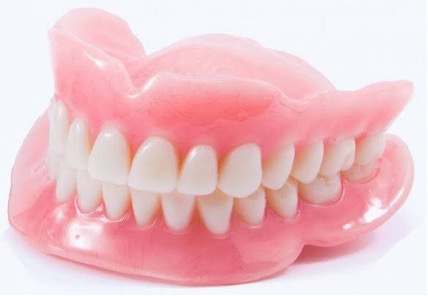Total Prostheses
Dentures are made when there are no teeth left in the mouth. The procedure typically requires 4-5 sessions. Implant-supported dentures are our first recommendation for completely edentulous patients because they are both easier to use and more comfortable. For those who have never used removable dentures before, getting used to a full denture can be challenging, but for those who cannot have implants, the dentures we create will function just like your natural teeth.
How To Clean Them?
Toothpaste is not used to clean complete dentures. You can clean them by placing tablets designed for these dentures in a glass of water and letting the denture sit in the water. These dentures can also be cleaned with a specially designed brush or a regular toothbrush. Dentures should be removed at night.
Will My Dentures Move When Eating?
Because the dentures are custom-made, they fit perfectly with your palate and won't move. However, in cases where bone support is limited, dentures can move while eating. In these cases, they can be secured with special adhesives or, if possible, implants can be used to provide support.
Can A Broken Tooth Be Repaired?
The key is the shape and size of the fracture. If necessary, measurements are taken and repairs are made. Fallen teeth can also be repaired.
What Can Be Done If The Prosthesis Loosens?
With age, bone loss occurs, which can cause the prosthesis to loosen and move. Impressions can be taken to restore the prosthesis's fit, which is called refeeding. However, if the fit is severely compromised, a new prosthesis may need to be rebuilt.
I'm Very Happy With My Upper Denture, But Why Is My Lower Denture Moving?
Upper dentures get their support from the palate, but the lower jaw doesn't have such a wide area. Furthermore, the tongue plays a significant role in the lower jaw. Lower teeth are generally lost earlier, and bone loss is greater. Therefore, the denture's retention is less easily weakened than in the upper jaw.

